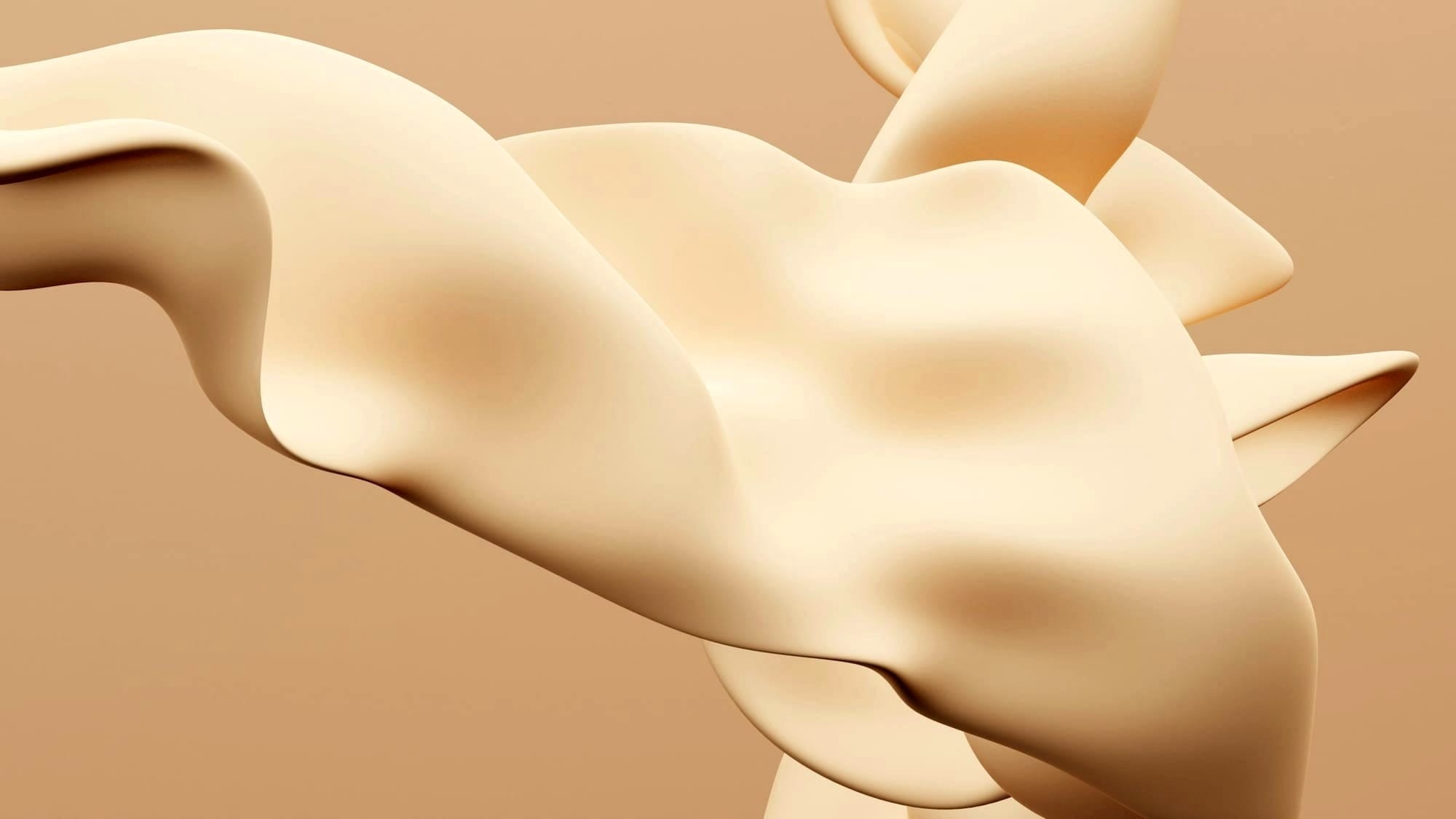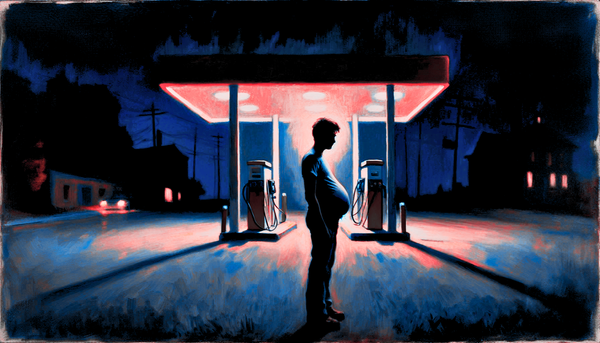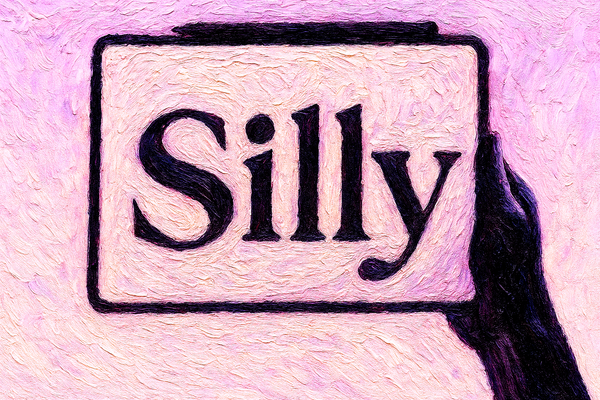Unbinding Venus: Pleasure and the Erotics of Uncertainty
Not all knots are meant to hold

When the self disappears, what remains in its place? To explore this idea, let's rework a scene from Ritter von Leopold Sacher-Masoch’s Venus in Furs (1870), a piece famously steeped in erotic power play and gendered identity.
Here, the binaries that structure its desire begin to loosen: male/female, dominant/submissive, actor/acted upon.
What remains is a kind of charged ambiguity where anyone could be anyone, and no one is entirely in control.
1. Original Extract: The Weight of Fixed Desire
The little bronze clock on which stood a cupid who had just shot his bolt struck midnight.
I rose, and wanted to leave.
Wanda said nothing, but embraced me and drew me back on the ottoman. She began to kiss me anew, and this silent language was so comprehensible, so convincing—
And it told me more than I dared to understand.
A languid abandonment pervaded Wanda’s entire being. What a voluptuous softness there was in the gloaming of her half-closed eyes, in the red flood of her hair which shimmered faintly under the white powder, in the red and white satin which crackled about her with every movement, in the swelling ermine of the kazabaika in which she carelessly nestled.
“Please,” I stammered, “but you will be angry with me.”
“Do with me what you will,” she whispered.
“Well, then whip me, or I shall go mad.”
“Haven’t I forbidden you,” said Wanda sternly, “but you are incorrigible.”
“Oh, I am so terribly in love.” I had sunken on my knees, and was burying my glowing face in her lap.
“I really believe,” said Wanda thoughtfully, “that your madness is nothing but a demonic, unsatisfied sensuality. Our unnatural way of life must generate such illnesses. Were you less virtuous, you would be completely sane.”
“Well then, make me sane,” I murmured. My hands were running through her hair and playing tremblingly with the gleaming fur, which rose and fell like a moonlit wave upon her heaving bosom, and drove all my senses into confusion.
And I kissed her. No, she kissed me savagely, pitilessly, as if she wanted to slay me with her kisses. I was as in a delirium, and had long since lost my reason, but now I, too, was breathless. I sought to free myself.
“What is the matter?” asked Wanda.
“I am suffering agonies.”
“You are suffering—” she broke out into a loud amused laughter.
“You laugh!” I moaned, “have you no idea—”
She was serious all of a sudden. She raised my head in her hands, and with a violent gesture drew me to her breast.
“Wanda,” I stammered.
“Of course, you enjoy suffering,” she said, and laughed again, “but wait, I’ll bring you to your senses.”
“No, I will no longer ask,” I exclaimed, “whether you want to belong to me for always or for only a brief moment of intoxication. I want to drain my happiness to the full. You are mine now, and I would rather lose you than never to have had you.”
“Now you are sensible,” she said. She kissed me again with her murderous lips. I tore the ermine apart and the covering of lace and her naked breast surged against mine.
Then my senses left me—
The first thing I remember is the moment when I saw blood dripping from my hand, and she asked apathetically: “Did you scratch me?”
“No, I believe, I have bitten you.”
2. Reworked Scene: Unmooring Intimacy
Little bronze clock with a cupid on top. Shot his shot, wounded. Time stuck in replywait. A bolt straight through midnight.
A body rose, wanting to leave.
The silence, a scream. In its echo, arms wrapped around its chest. Flesh against flesh. Drawn forward. Back on the couch.
The drag of lips against nerve endings. Soft and slow. Another kiss. A familiar silence, asking to be believed–
Spilling things impossible to take in.
A slow pullback. The other body withdrew into itself. The soft glow of eyes, abandoned. The blood of hair. The static shimmer beneath the chalk of the face.
Satin licked skin, whispering against the belly. The body answered. The fur, a mouth devouring the tip of each limb.
Please. A stammer, satin caught in the throat. You’ll be angry with me after.
Do with me what you will.
Whip me. I think I’ll go mad if you don’t.
No. I’ve told you before. A wrist unwound. You’re impossible.
I am mad, you know. It’s too late. Floor against knees. Lips against fabric, against thighs, to glide over.
I think your madness is nothing more than frustrated sensuality. Our way of life feeds such aches. If you were any less moral, you’d be sane.
Then make me sane. Hands in hair, in fur. The moonlit wave of it washing over the delicate arrangement of want. Senses beaten into confusion.
The drag of lips against nerve endings. Hard and fast. Another kiss. Savage, pitiless. As if it wanted to wound that which reached for it.
Mind a fever. Reason, long since lost. Nothing left to do but look inside broken lungs. Wanting to end that which held breath close to the body.
What’s wrong?
It’s agony.
What–
Laughter threw itself against the walls. The peal of it thick and bloody.
You wouldn’t be laughing if you had any idea–
Seriousness bullied its way between bone and heat. Hands raised the head resting in the net of skin. Pulled it up to the chest. Soft and violent.
You–
Of course, you enjoy suffering. Another slap of laughter. But I can bring you to your senses.
I don’t care anymore. Words shy of a shout. I don’t care if you'll belong to me forever or just for now. I want to drain this feeling. You’re mine now, and I’d rather lose you than never have felt you.
Now, you sound sensible.
Another brutal kiss. Hands in fur, tearing at its flesh. The crackle of lace ripping. Milky skin against charcoal air, spilling against the body pressed into it.
Then, all sense lost–
The first thing to coalesce is the moment, followed by the drip of blood from an outstretched hand.
Did you scratch me?
No feeling in that voice.
No. I think I bit you.
3. Shadows and Shifts: Tracing the Unseen Currents

We’ve achieved several key things here. First, we’ve stripped away the ornate excess of the prose without losing its sensual aesthetic. Since language often isolates through its historically dictated form, we’ve tried to preserve a pulse—compressed and disorienting—that feels more contemporary.
We’ve also rendered the story’s world genderless—no easy feat. This approach was inspired by Teymour Shahabi’s intentional omission of gender in Stranger in Love (2022).
As a result, the two voices—or rather, presences—could belong to anyone. This opens the door to projection instead of fixed identity, a possibility unlikely to have taken root in the 19th century.
In turn, the reworked language dissolves identity while maintaining physical and emotional intimacy, proving that the self can thrive beyond the body that contains it.
This shift introduces a crucial focus on agency and ambiguity. By blurring who initiates, consents, or reacts, it destabilises the text’s central power dynamic.
4. Final Thoughts: The Unseen Knot
And so, the reworked scene unmasks some of the illusions we cling to about intimacy: that it must be owned, assigned, or confined.
By dissolving these certainties, we open ourselves up to a truth often ignored, namely that pleasure is messy, unstable, and resistant to rules. It asks us not to submit to roles but to rewrite them, to question who holds the reins, and whether control is ever truly held at all.
We’re left with the reminder that, in the knotted dance of desire, nothing is truly fixed, and everything is possible. Language holds the limits of experience—and can just as easily unmake them. So, how does the way we talk about intimacy shape how we live it?




